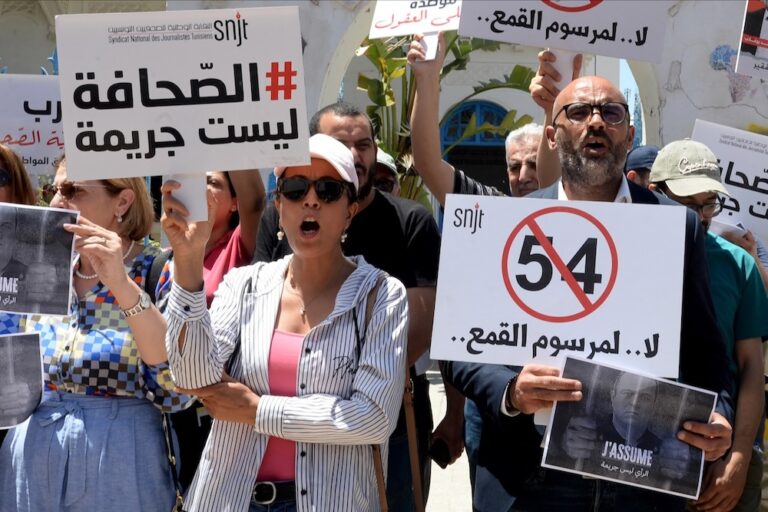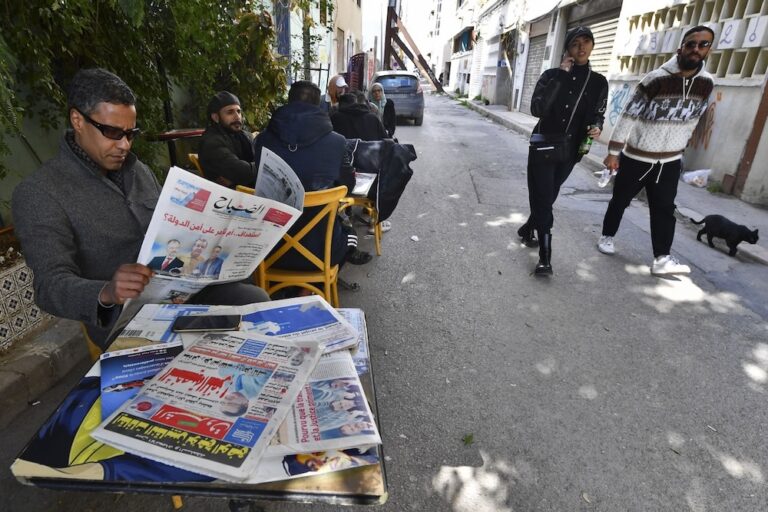(RSF/IFEX) – On 17 May 2002, RSF denounced the Tunisian government’s “disgraceful” refusal to allow Jean-Pierre Tuquoi, a reporter from the French daily newspaper “Le Monde”, into the country to cover the 26 May constitutional referendum. “In the past month, the Tunisian regime has targeted two foreign journalists,” noted RSF Secretary-General Robert Ménard in a […]
(RSF/IFEX) – On 17 May 2002, RSF denounced the Tunisian government’s “disgraceful” refusal to allow Jean-Pierre Tuquoi, a reporter from the French daily newspaper “Le Monde”, into the country to cover the 26 May constitutional referendum. “In the past month, the Tunisian regime has targeted two foreign journalists,” noted RSF Secretary-General Robert Ménard in a letter to Interior Minister Hedi M’henni. “It is disgraceful to do this just a few days before the referendum, at a time when many foreign journalists are coming to cover the event,” he added.
Tuquoi, “Le Monde”‘s North Africa expert, was turned back at Tunis-Carthage airport on 16 May, the same day that RSF presented in Paris a “black book” about human rights violations in Tunisia, published by Éditions La Découverte.
“Tuquoi has never made any secret of his ill will towards Tunisia, through his insults and hostility, and his determination to harm the country,” the Tunisian authorities stated in an official statement sent to Agence France-Presse.
Tuquoi and Nicholas Beau wrote a book in 1999 entitled “Notre ami Ben Ali : l’envers du ‘miracle tunisien'” (“Our Friend Ben Ali: the other side of the ‘Tunisian miracle'”), also published by La Découverte, which exposed the hidden repressive system in the country. Tuquoi had not travelled to Tunisia since the book was published. The Tunisian authorities regularly censor “Le Monde” when it carries articles criticising the regime.


